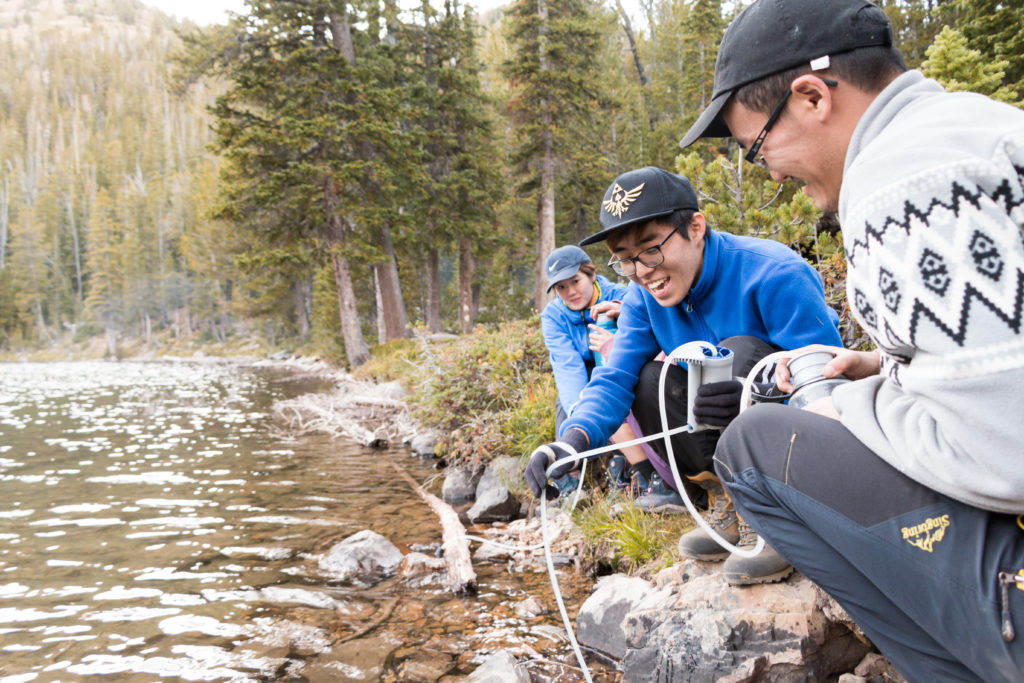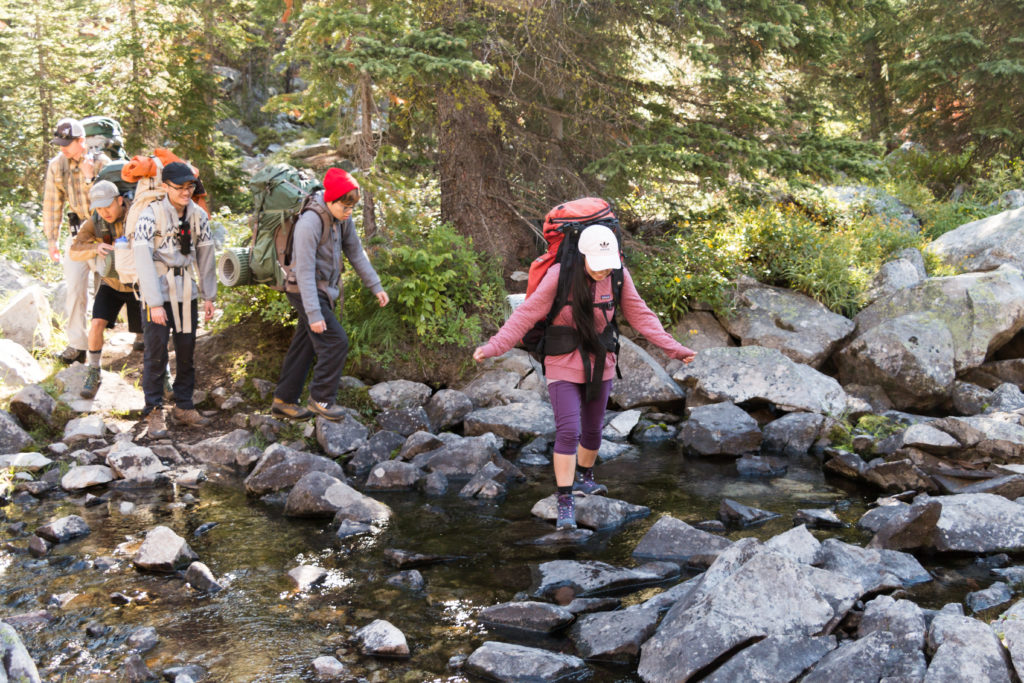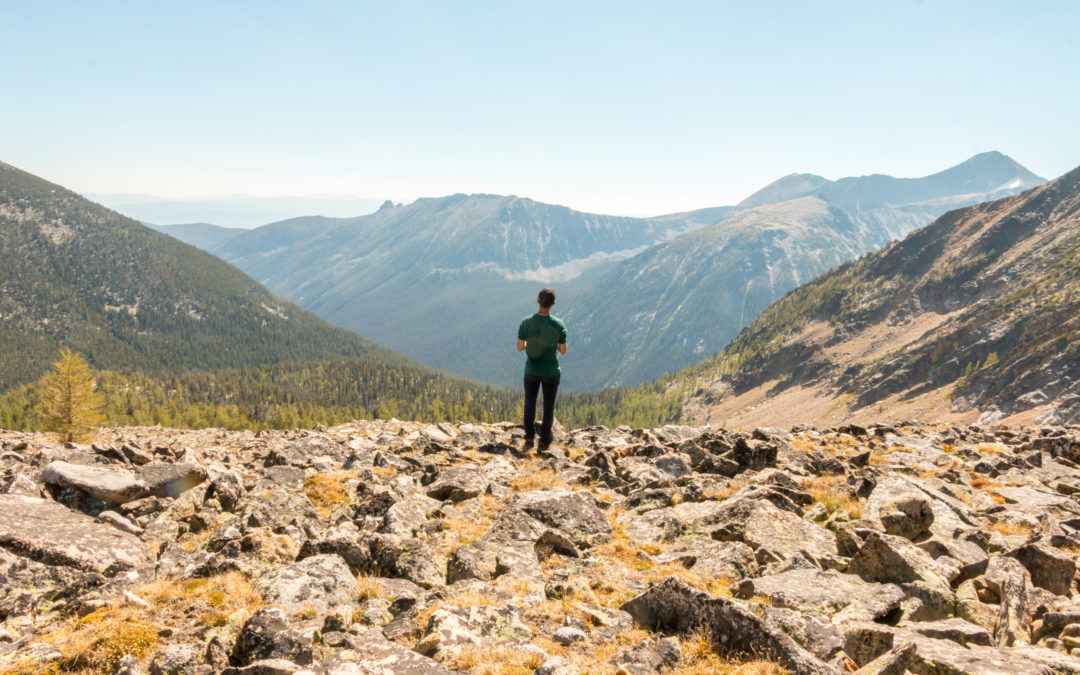A group of college students from across the United States came together to participate in a week-long hiking trip in the iconic wildernesses of Montana. Emerging from barren hills spiked with burnt trees, snow-covered mountain peaks and shining crystal lakes, this group of young people changed in ways that were inevitably difficult to articulate. Afterwards, they wrote simple but profound reflections on how nature can be a crucible for leadership development and not just a picture on the background of their smartphones and computers.
Arguably the best classroom for life, nature is the perfect space for youth to become the kind of leaders our world needs today. Without any fuss, nature forces all that engage with it to face themselves, leaving behind any pretensions or masks they may put up for those around them.
In the words of college youth post-hike, here is why time spent in nature can make you a better leader:
- Good leaders do not strive to be comfortable; they take risks and face their weaknesses. Every team member was required to take on different leadership roles each day, like trail lead (orienteering and pace control) and medic (administrating first aid).
“Even with all the peace and beauty of nature that surrounded us, I often struggled from the discomfort that came with the responsibilities of my role. Stemming from my shyness, I continuously faced a weakness that I knew all too well — my fear of making mistakes.
I was unfamiliar with the tasks of my assigned role… As a result, I found myself doing the bare minimum. Although I was able to avoid making big mistakes, I soon became consumed by a sense of defeat that followed my escape from the challenge.
I now realize that such a challenge was precisely the gift that nature offered, presenting me with the opportunity to identify and observe my weaknesses.”
- Leave behind distractions; focus on the present, the presence of the people around you. Montana mountains don’t come with power outlets. Leaving behind the constant availability of technological conveniences, the hikers quickly realized how much there was to live for in the moment, not surfing the web or playing games on their phones.

College students pumping water together for meal prep
“In the mountains, we were without our phones and other man-made distractions. We were forced to use the natural things around us, to watch over and care for others, and ask for help if we needed. Even just after five days, I experienced that we literally had to live for the sake of others in order to survive. It is only natural that we worried for others and also depended on others.”
“In my daily life, surrounded by flashy technology, busy schedules and social interactions, it is easy for me to ignore the flaws in my character that hold me back. Making excuses was easy in such an environment filled with distractions.
‘I can forget about it for now.’
‘I have more important things to do.’
This constant delay in solving my problems led to negative emotions that I avoided by watching TV-shows and playing video games.
But, such tricks don’t work in nature.
When I was having a difficult time confronting my weaknesses, I couldn’t rely on a YouTube video and my favorite snack to distract myself. Instead, I had no choice but to face myself. The purity and simplicity of nature was such that I had to face my flaws and that helped me to set a sincere determination to overcome them. I came away on that day with a deeper understanding of myself.”
- You already have everything you need to be a leader. There may be many improvements to be made within each of us that we must discover ourselves, but the materials we need to become great leaders are already available to every one of us. It takes grit, humility to learn from others, and a constant positive attitude.

Leading the team to the day’s destination
“When out in nature, I also saw that it does not take much for us to live happily in this physical world. Even in the woods, God had provided us with everything we need to live. Besides the food that we brought with us (or could have gotten from hunting and fishing if necessary), we had streams for water, flat and grassy lands for comfortable shelter, trees to hang food away from bears, wood to build warm fires, and all of nature’s beauty to enjoy. As we hiked during the day and rested during the nights, we also had one another to interact with and learn from.
They say that people learn a lot about one another and bond closely when we live together in the mountains, and I think that is very true! It was very refreshing to talk to my brothers and sisters not just about how they are doing, but also have conversations on a deeper level.”
Turn off your phone. Nature is calling.

